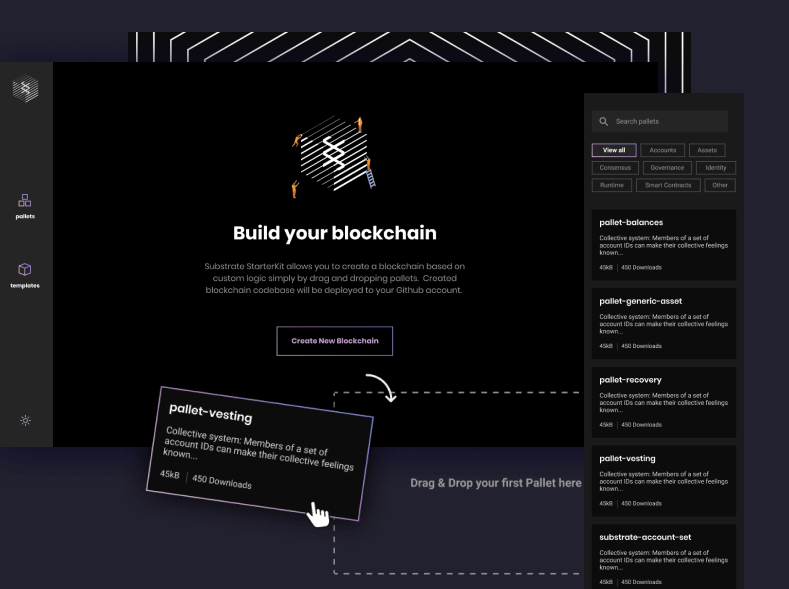Our team dedicated to innovations has successfully completed a project supported by the Web3 Foundation grant called Substrate Blockchain Starter Kit!
If you are into blockchain and its development, you know how hard and long the development process can be. The emergence of Substrate, a new framework for blockchain development, brought significant improvements. One of the main is its modularity and the option to use predeveloped components (called pallets) and create a blockchain crafted to your needs.
Pallets are modules written in Rust code, and they represent different components of the blockchain that would otherwise take days and weeks to develop.
They ensure that the new blockchain is built easier, faster and that it is more robust as many pallets have already been audited and used within many different blockchains.
To make this process of blockchain development even easier, we created a Substrate Blockchain Starter Kit – a tool that brings the simplicity of creating a blockchain to another level. By drag and dropping pallets to a codebase, you can have your customized blockchain deployed in less than a minute!
How does it work?
There are five simple steps you have to take before you can have your custom blockchain deployed. And don’t worry, it is so simple that you don’t have to be a developer to do it.
- Start the application
Once you open the application, you are provided with the default set-up within the codebase. It includes pallets that are part of the node template, a mandatory part of each blockchain generated through this app.
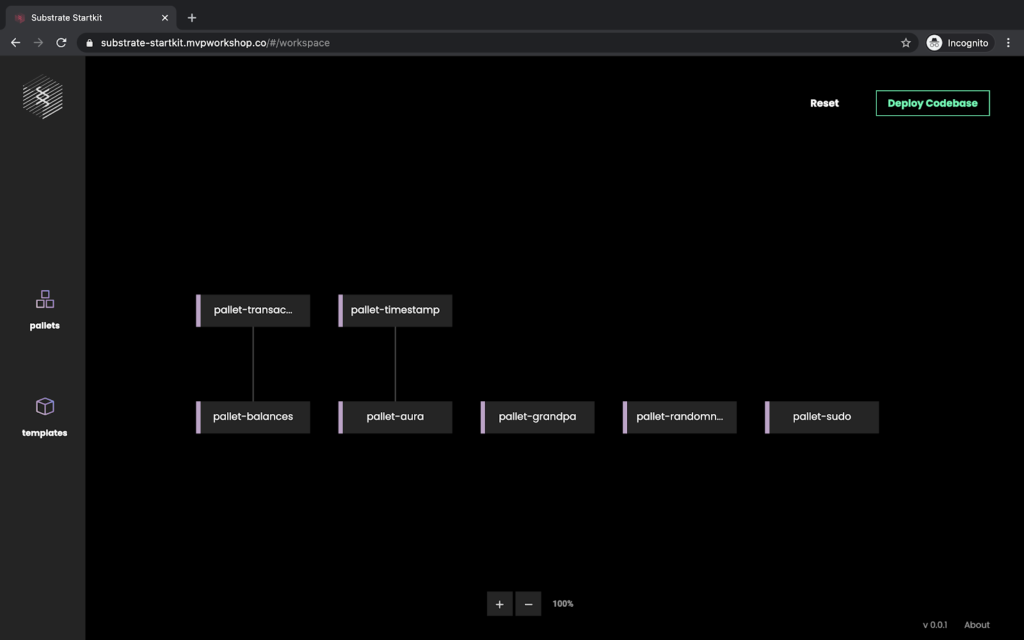
- Start by adding pallets
To start the customization, you can choose one of the pallets. Make sure you pick the right one, as there are plenty of available ones. Each pallet brings a different set of functionalities to your blockchain.
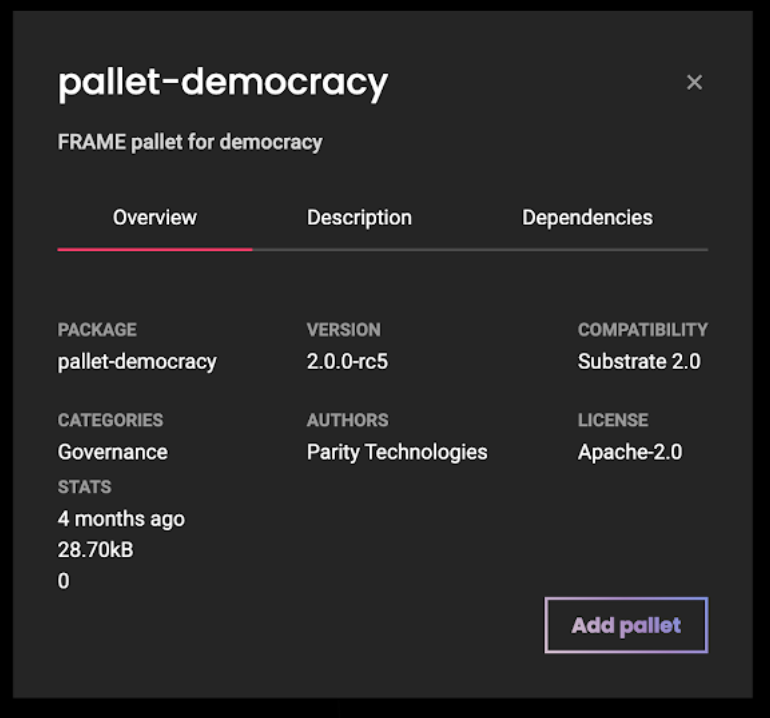
- Let us deal with complex dependencies
Building blockchain by adding pallets is much easier. However, some parts of the process make it a bit more complicated as some dependencies have to be satisfied to enable a successful compile. But do not worry, the application takes care of all dependencies, and it ensures that all of them will be satisfied and the final code will compile without any problems.
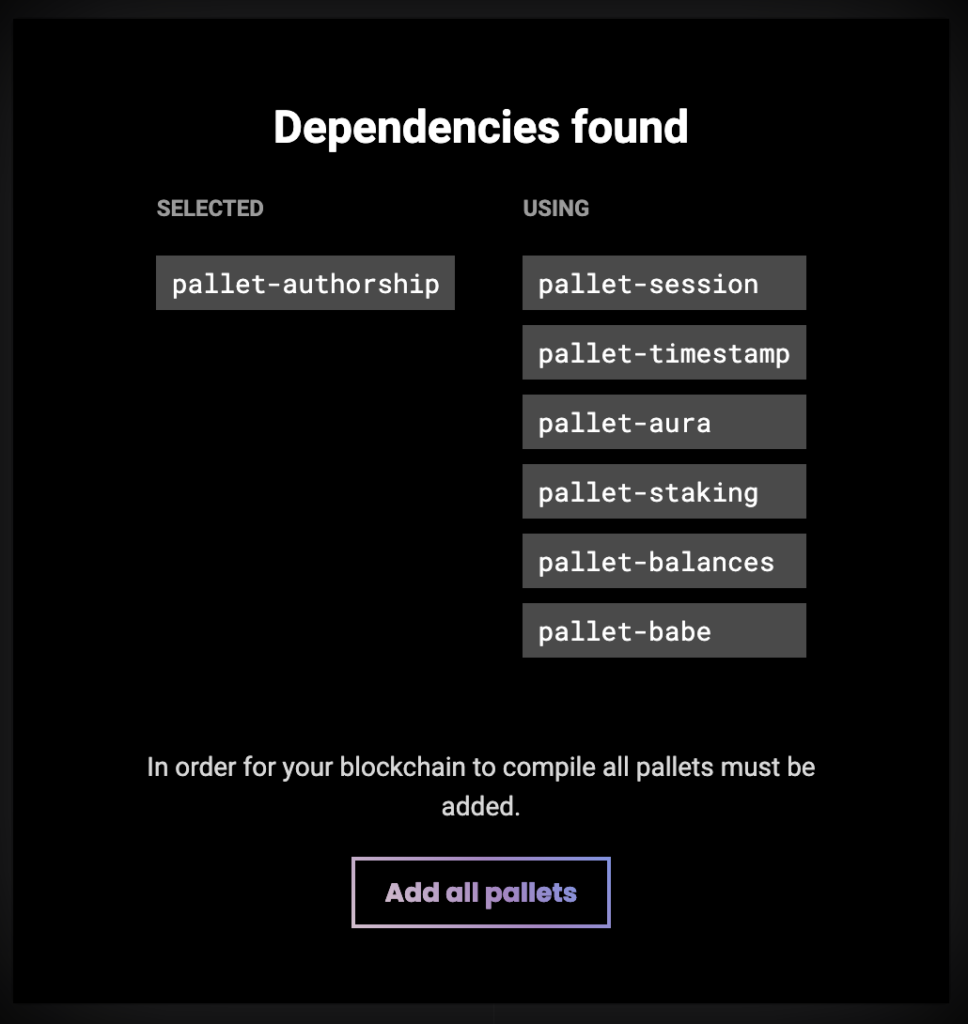
- Templates make the entire process even faster
Pallets are predeveloped modules written in Rust code with some functionalities. However, creating a blockchain usually requires more than one pallet, as each of them provides one or few functionalities you need.
Hence, we wanted to identify common use cases where blockchain solutions are a perfect fit and provide users with predeveloped templates for those use cases. The Substrate community has helped us here by providing templates that they have been working on. Thanks to them, anyone can benefit. For example, if you need a supply chain solution, you already have a template developed for it, and there is no need to look for each pallet separately. Thus besides adding pallets, you can speed up the whole process by adding predefined templates.
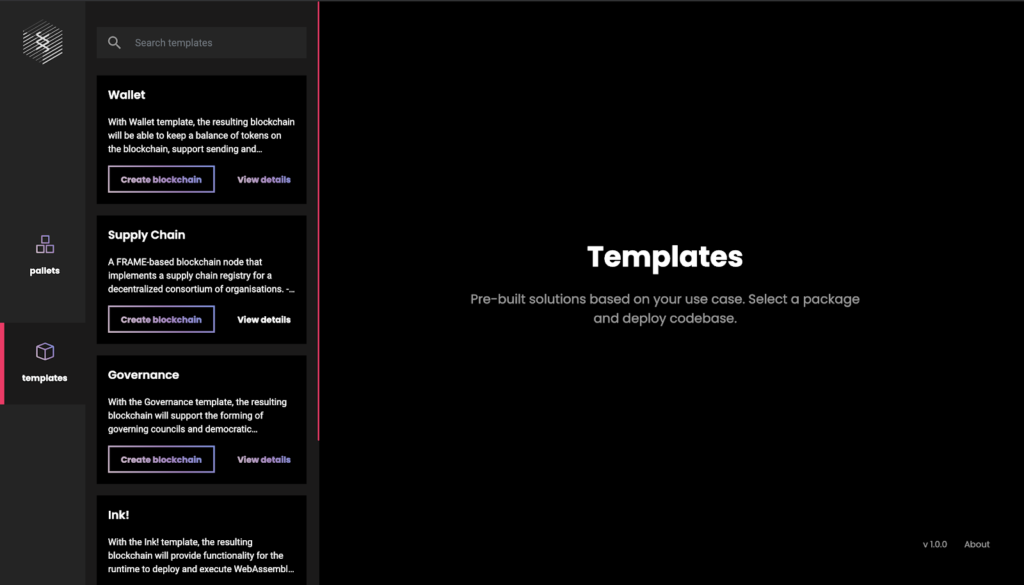
- You’re all set
Once you have your blockchain ready, either you have chosen suitable pallets or went with an already existing template, you can deploy it. To make the process even less cumbersome, you can authenticate in the app with your Github account and deploy the generated code directly to a newly created repo on your Github.
If you need a step-by-step guide, please check this video. Now it’s time to create your first blockchain! Go to Substrate Blockchain Starter Kit and don’t forget to share your first impressions.
Help us by spreading the word with other web3 enthusiasts!
If you still need more information, contact us at [email protected].
